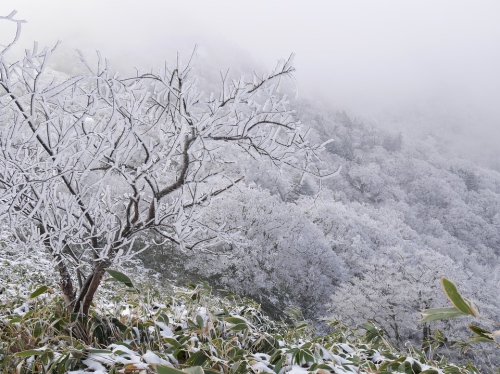It is controversial whether Eurasian mid-latitude cold surges are becoming more likely as a consequence of Arctic warming. A strong cold surge occurred during 21st–25th January 2016 affecting most areas of China, especially Eastern China. Daily minimum temperature records were broken at many stations. The area averaged anomaly of minimum temperature over the region (20-44oN, 100-124oE) for this pentad average was the lowest temperature recorded since modern meteorological observations started in 1960. This cold event occurred in a background of warming winter trend and 2015/2016 is the warmest winter in terms of minimum temperature since 1960. Given the vast damages caused by this extreme cold event in Eastern China and the previous mentioned controversy, it is compelling to investigate what role was played by human influences on this record-breaking cold event and to quantify how much anthropogenic forcing agents have affected the probability of cold events with an intensity equal to or larger than the January 2016 extreme event.
Collaborative efforts among scientists from Institute of Atmospheric Physics, Chinese Academy of Sciences(IAP, CAS), China Meteorological Bureau, Met Office Hadley Centre of UK, University of Reading and University of Edinburgh, investigated the effect of anthropogenic forcings on the likelihood of such a cold event. They used the Met Office Hadley Centre system for Attribution of extreme weather and Climate Events and station observations.

A strong cold surge. (Image by Pixabay)
"Anthropogenic influences are estimated to have reduced the likelihood of an extreme cold event in mid-winter with the intensity equal to or stronger than the record of 2016 in Eastern China by about 2/3.” Says QIAN Cheng from IAP, the first author of the study. “Still, we caution that even under human-induced warming, extreme cold events can still occur as a result of natural variability.”
This work was published in Bulletin of American Meteorological Society.
Reference: Qian C., J. Wang, S. Dong, H. Yin, C. Burke, A. Ciavarella, B. Dong, N. Freychet, F. C Lott, and S. F. B. Tett, 2018: Human influence on the record-breaking cold event in January of 2016 in Eastern China. Bull. Amer. Meteor. Soc., 99(1), S118-S122, DOI:10.1175/BAMS-D-17-0095.1
Media Contact: LIN Zheng, jennylin@mail.iap.ac.cn
